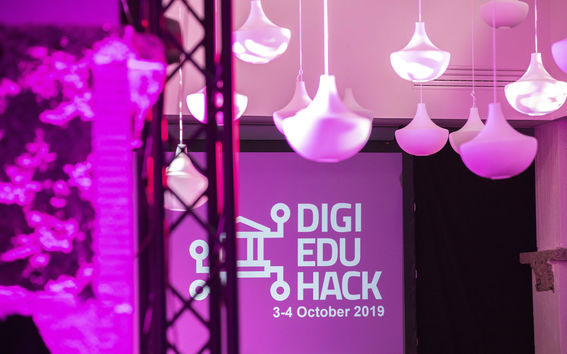Virtual avatars, AI and mobile platforms – new inventions designing the future of digital education

DigiEduHack gathered more than 1700 participants to solve challenges simultaneously during 24 hours, in 21 countries around the globe. The global main event was held at Aalto University in Finland. DigiEduHack is an EIT initiative under the European Commission's Digital Education Action Plan, led by EIT Climate-KIC and coordinated by Aalto University.
The result of the 33 hackathons was more than 130 solutions to today’s and the future’s biggest challenges in digital education. The innovations, coming from all corners of the globe, are presenting solutions to a range of challenges in the digital age. The judging criteria were relevance, quality, originality, feasibility, transferability, and sustainability.
Mariya Gabriel, Commissioner for Innovation, Research, Culture, Education and Youth at the European Commission commented on the winning solutions:
‘I warmly congratulate the three winning teams at the very first DigiEduHack! They have become Digital Education Ambassadors who will promote high-quality education in the digital age. The winning projects reflect the diverse nature of digital education, and I am looking forward to seeing them come to life.’
Three winners were chosen by the global audience - presented in random order:
Teaming 4.0, Monterrey Institute of Technology and Higher Education, Monterrey, Mexico:
Using artificial intelligence to create better teams on the basis of co-evaluations of individual skills and overall teamwork performance and satisfaction.
Science Escape Room, ICS Capozzi-Galilei School, Valenzano, Italy:
A scientific escape room as a virtual tool to provide students with an immersive learning experience and enhance digital education in science literacy. In the Science Escape Room, different avatars will interact with scientific objects to allow the invisible world to become visible.
Student4Students, inLAB FIB, Polytechnic University of Catalonia, Barcelona, Espanja:
Student4Students is a mobile platform for last year high school students who are interested in learning more about career options in Informatics and getting in touch with university students who already pursue such studies.
The three winning teams will be awarded with 5000 euros each in Brussels, Belgium, on 21 January 2020, and they will become EU’s Digital Education Ambassadors. More information about the award ceremony will be available shortly.
More info
www.digieduhack.com
EIT Climate-KIC
Contact
Ida Andersson
Project Manager
DigiEduHack
[email protected]
tel. +358 50 464 8094
- Published:
- Updated:
Read more news

Seed funding available to boost collaboration between Aalto, KU Leuven and University of Helsinki
Aalto University, KU Leuven and the University of Helsinki launch the 2nd exploratory seed funding call to explore research collaboration possibilities. The funding call is open until 10 September 2024.
Workshop day for teachers: 360° environments and podcasts
On Tuesday 4.6. a workshop day consisting of 360° environment creation and podcast production provides a way to get to know these media in practice. Feel free to join both workshops or one of them according to your time and interest.
Professor Peter Hans Matthews works as a Fulbright-Aalto Distinguished Chair scholarship holder at the Department of Economics
Fulbright programmes and scholarships are highly appreciated in the United States